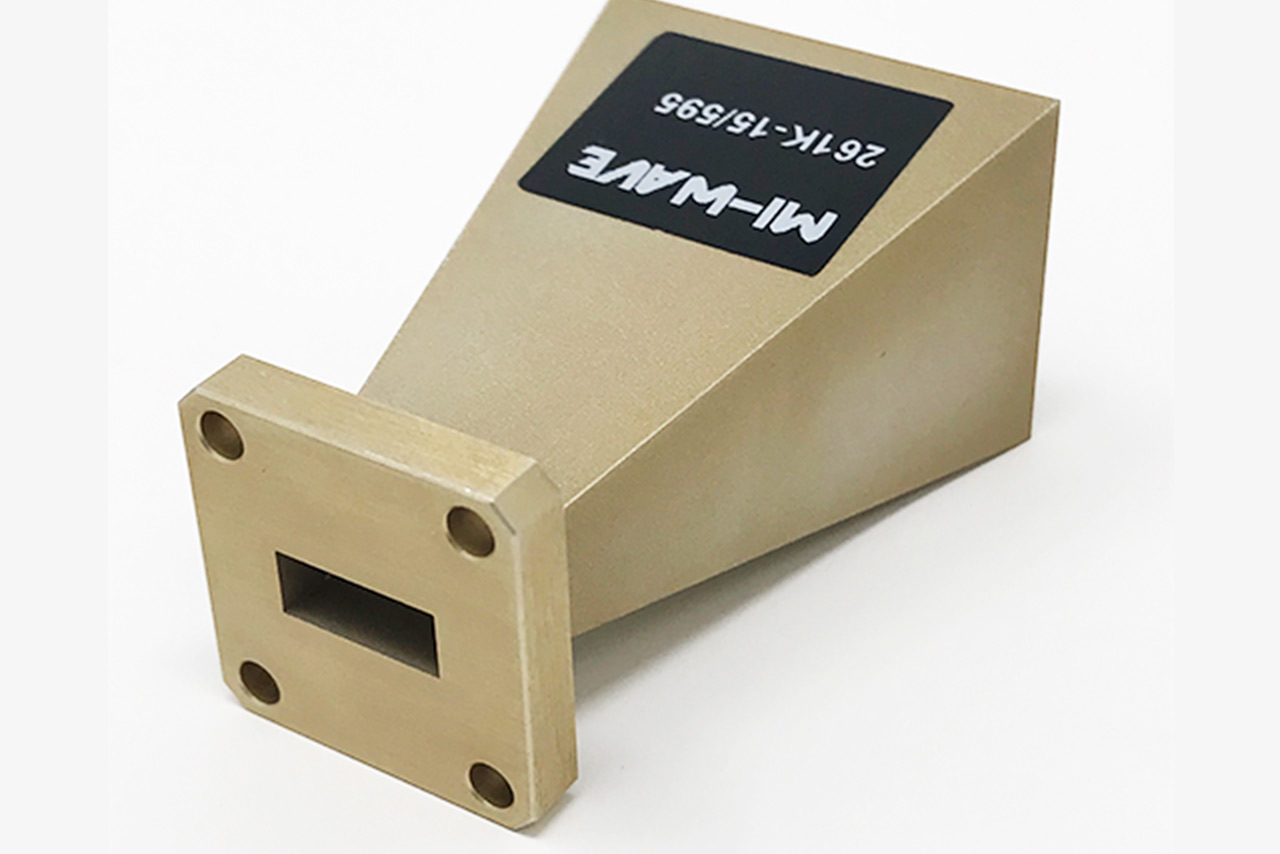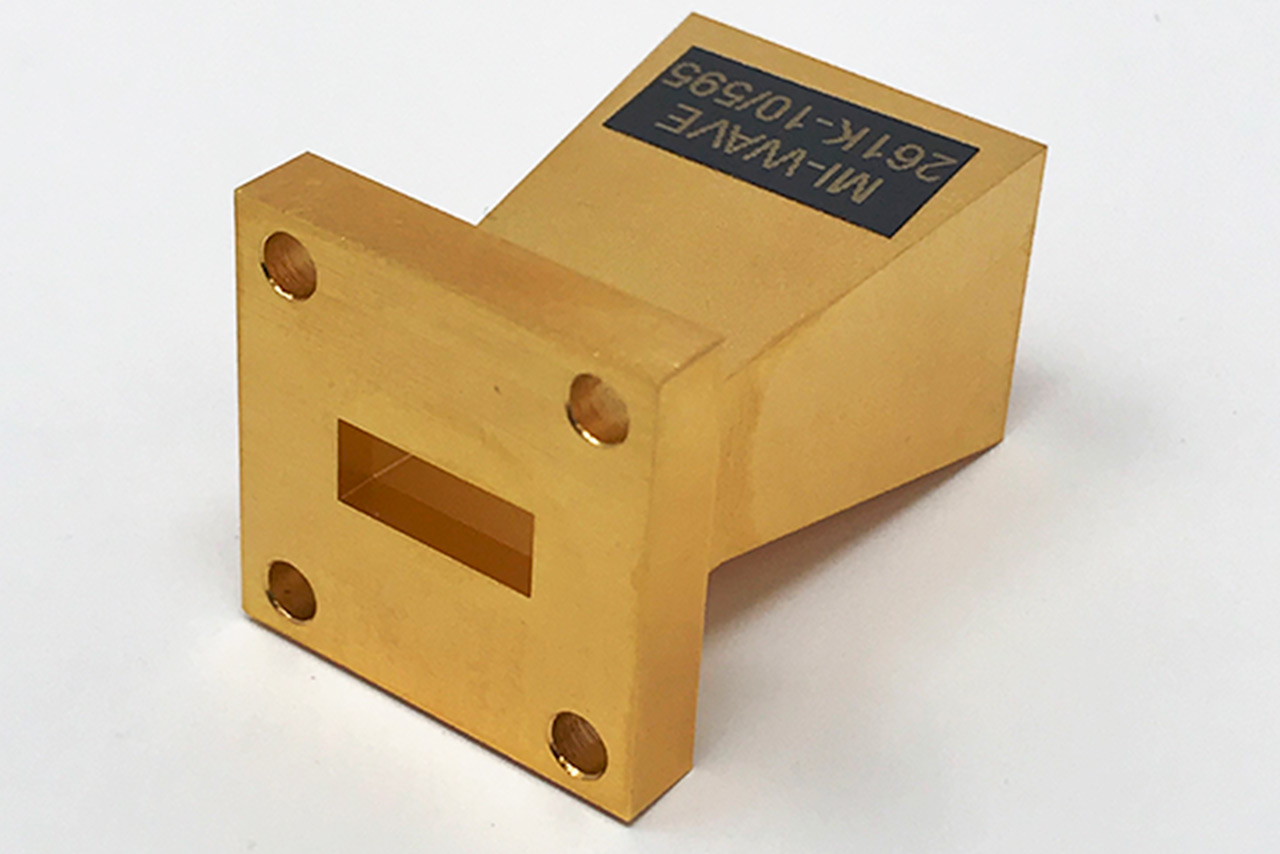Description:
Mi-Wave’s K-Band Horn Antennas | WR-42 | 18 – 26.5 GHz are created with the end consumer in mind. We know you need and demand the absolute best when it comes to k-band horn antennas and look to provide you with the best solutions possible. Some of the highlights of our k-band horn antennas are:
Features
• Nominal Gain of 25 dB
• Available from 12.4 to 500 GHz
• Made with precise dimensional tolerance control
• Gain calibration is accurate to 0.5 dB over full waveguide bandwidth
Applications
• Low F/D Antennas
• Surveillance Systems
• Offset Feed Antenna
*All data presented is collected from a sample lot.
* Actual data may vary unit to unit, slightly.
*All testing was performed under +25 °C case temperature.
*Consult factory to confirm if material, plating, size, shape, orientation and any electrical parameter is critical for the application as website information is for reference only.
*Millimeter Wave Products, Inc. reserves the right to change the information presented on website without notice as we continue to enhance the performance and design of our products.
K-Band Horn Antennas | WR-42 | 18 – 26.5 GHz
If you are looking for k-band standard gain horn antennas, then you’ve come to the right place. At Millimeter wave products Inc. (Mi-Wave) we specialize in manufacturing the highest quality standard gain horn antennas for many needs.
What makes our standard gain horns the preferred choice?
Mi-Wave’s 261 k-band Series standard gain horn antennas are fabricated with very close tolerances to ensure the precision of every horn manufactured by Mi-Wave. Each unit is joined to a short section of rectangular wave-guide and terminated in a standard flange. This is critical when you need the best quality millimeter wave products all doing their part in your application.



